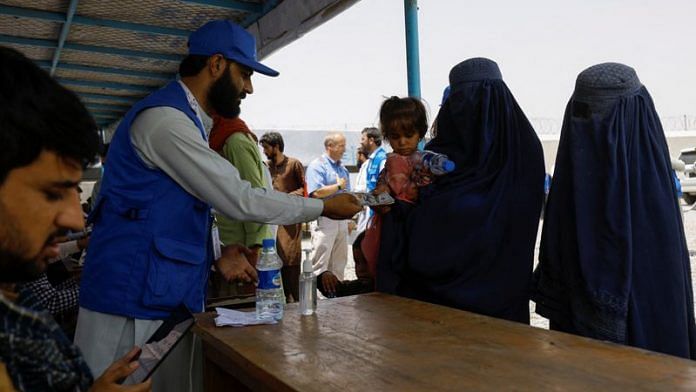Kabul: Afghanistan’s economy will contract, inflation will rise and liquidity will fall if there is a 30% drop in international aid as feared, according to an analysis by the United Nations’ development agency released on Tuesday.
International officials say aid to Afghanistan, the recipient of the world’s largest humanitarian program, will drop sharply this year as donors assess global crises and because of restrictions on female aid workers imposed by the Taliban administration.
The United Nations’ Development Programme (UNDP) analysed the impact of a 30% drop in aid and found gross domestic product for the already struggling economy would shrink 0.4% this year.
“This will cause an exchange rate devaluation, another contraction in liquidity, banks and informal credit will face more problems … inflation will go up and domestic demands will go down, leading to more poverty and less growth,” Abdallah Al Dardari, UNDP’s Resident Representative for Afghanistan, told Reuters. “The country finds itself in a poverty trap.”
Per capita annual incomes could fall to $306 in 2024 – representing a 40% drop since 2020 and placing the country among the poorest in the world.
Afghanistan’s humanitarian aid plan is only 5% funded for 2023, with $251 million committed out of $4.6 billion requested.
“We may find ourselves in a larger drop in aid than 30%,” said Al Dardari.
If aid continued at $3.7 billion, received last year, the economy was projected to grow 1.3%, making up some ground after plummeting since the Taliban came to power and foreign forces and development aid withdrew in 2021, but still failing to keep pace with more than 2% population growth.
The Taliban administration’s order banning most female NGO workers in December followed by a decision to restrict Afghan women from working at the United Nations this month have exacerbated fears that donors would turn away from Afghanistan. The U.N. has told Afghan staff not to come to the office while it reviews its operations.
Taliban officials have said their decisions on female aid workers are an “internal issue” and that foreign governments should reduce restrictions and unfreeze central bank assets to alleviate the economic crisis.
(Reporting by Charlotte Greenfield; Editing by Raju Gopalakrishnan)
Disclaimer: This report is auto generated from the Reuters news service. ThePrint holds no responsibilty for its content.
Also read: Massive landslide kills two Afghan nationals, buries 20 trucks in Northwest Pakistan



